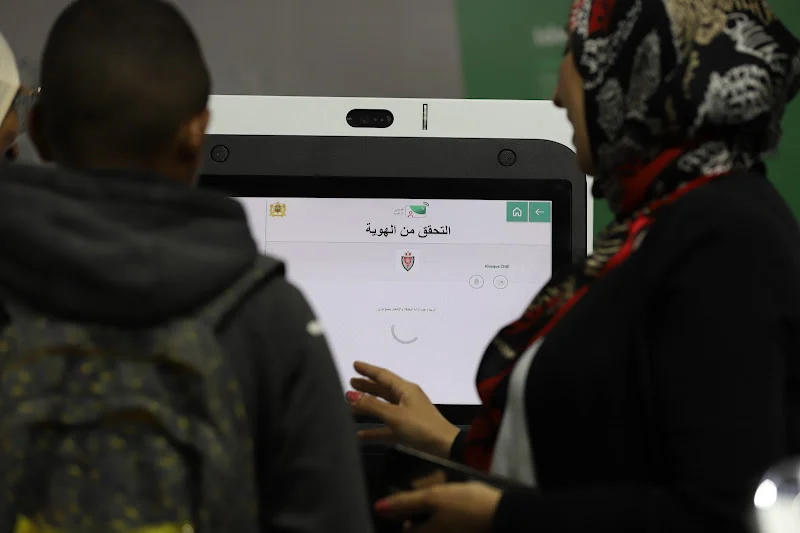Ethics & Policy
Universities Bypass Ethics Reviews for AI Synthetic Medical Data

In the rapidly evolving field of medical research, artificial intelligence is reshaping how scientists handle sensitive data, potentially bypassing traditional ethical safeguards. A recent report highlights how several prominent universities are opting out of standard ethics reviews for studies using AI-generated medical data, arguing that such synthetic information poses no risk to real patients. This shift could accelerate innovation but raises questions about oversight in an era where AI tools are becoming indispensable.
Representatives from four major medical research centers, including institutions in the U.S. and Europe, have informed Nature that they’ve waived typical institutional review board (IRB) processes for projects involving these fabricated datasets. The rationale is straightforward: synthetic data, created by algorithms that mimic real patient records without including any identifiable or traceable information, doesn’t involve human subjects in the conventional sense. This allows researchers to train AI models on vast amounts of simulated health records, from imaging scans to genetic profiles, without the delays and paperwork associated with ethics approvals.
The Ethical Gray Zone in AI-Driven Research
Critics, however, warn that this approach might erode the foundational principles of medical ethics, established in the wake of historical abuses like the Tuskegee syphilis study. By sidestepping IRBs, which typically scrutinize potential harms, data privacy, and informed consent, institutions could inadvertently open the door to biases embedded in the AI systems generating the data. For instance, if the algorithms are trained on skewed real-world datasets, the synthetic outputs might perpetuate disparities in healthcare outcomes for underrepresented groups.
Proponents counter that the benefits outweigh these concerns, particularly in fields like drug discovery and personalized medicine, where data scarcity has long been a bottleneck. One researcher quoted in the Nature article emphasized that synthetic data enables rapid prototyping of AI diagnostics, potentially speeding up breakthroughs in areas such as cancer detection or rare disease modeling. Universities like those affiliated with the report are already integrating these methods into their workflows, viewing them as a pragmatic response to regulatory hurdles that can stall projects for months.
Implications for Regulatory Frameworks
This trend is not isolated; it’s part of a broader push to adapt ethics guidelines to AI’s capabilities. In the U.S., the Food and Drug Administration has begun exploring how to regulate AI-generated data in clinical trials, while European bodies under the General Data Protection Regulation (GDPR) are debating whether synthetic datasets truly escape privacy rules. Industry insiders note that companies like Google and IBM are investing heavily in synthetic data generation, seeing it as a way to comply with strict data protection laws without compromising on innovation.
Yet, the lack of uniform standards could lead to inconsistencies. Some experts argue for a hybrid model where synthetic data undergoes a lighter review process, focusing on algorithmic transparency rather than patient rights. As one bioethicist told Nature, “We’re trading one set of risks for another—real patient data breaches for the unknown perils of AI hallucinations in medical simulations.”
Balancing Innovation and Accountability
Looking ahead, this development could transform how medical research is conducted globally. With AI tools becoming more sophisticated, the line between real and synthetic data blurs, promising faster iterations in machine learning models for epidemiology or vaccine development. However, without robust guidelines, there’s a risk of public backlash if errors in synthetic data lead to flawed research outcomes.
Institutions are responding by forming internal committees to self-regulate, but calls for international standards are growing. As the Nature report underscores, the key challenge is ensuring that this shortcut doesn’t undermine trust in science. For industry leaders, the message is clear: embrace AI’s potential, but proceed with caution to maintain the integrity of ethical oversight in an increasingly digital research environment.
Ethics & Policy
Vatican Hosts Historic “Grace for the World” Concert and AI Ethics Summit | Ukraine news

Crowds gather in St. Peter’s Square for the concert ‘Grace for the World,’ co-directed by Andrea Bocelli and Pharrell Williams, as part of the World Meeting on Human Fraternity aimed at promoting unity, in the Vatican, September 13, 2025. REUTERS/Ciro De Luca
According to CNN CNN
In the Vatican, a historic concert titled “Grace for the World” took place, which for the first time brought together world pop stars on St. Peter’s Square. The event featured John Legend, Teddy Swims, Karol G, and other stars, and the broadcast was provided by CNN and ABC News. The concert occurred as part of the Third World Meeting on Human Fraternity and was open to everyone.
During the event, performances spanning various genres graced the stage. Among the participants were Thai rapper Bambam from GOT7, Black Eyed Peas frontman Will.i.am, and American singer Pharrell Williams. Between performances, Vatican cardinals addressed the audience with calls to remain humane and to uphold mutual respect among people.
Key Moments of the Event
“to remain humane”
Within the framework of the Third World Meeting on Human Fraternity in the Vatican, the topic of artificial intelligence and ethical regulation of its use was also discussed. The summit participants emphasized the need to establish international norms and governance systems for artificial intelligence to ensure the safety of societies. Leading experts joined the discussion: Geoffrey Hinton, known as the “godfather of artificial intelligence,” Max Tegmark from the Massachusetts Institute of Technology, Khimena Sofia Viveros Alvarez, and Marco Trombetti, founder of Translated. Pope Leo XIV also participated in the discussion and reaffirmed the position of the previous pope regarding the establishment of a single agreement on the use of artificial intelligence.
“to define local and international pathways for developing new forms of social charity and to see the image of God in the poor, refugees, and even adversaries.”
They also discussed the risk of the digital divide between countries with access to AI and those without such access. Participants urged concrete local and international initiatives aimed at developing new forms of social philanthropy and supporting the most vulnerable segments of the population.
Other topics you might like:
Ethics & Policy
Pet Dog Joins Google’s Gemini AI Retro Photo Trend! Internet Can’t Get Enough | Viral Video | Viral

Beautiful retro pictures of people in breathtaking ethics in front of an esthetically pleasing wall under the golden hour is currently what is going on on social media! All in all, a new trend is in the ‘internet town’ and it’s spreading- fast. For those not aware, it’s basically a trend where netizens are using Google’s Gemini AI to create a rather beautiful retro version of themselves. In a nutshell, social media is currently full of such pictures. However, when this PET DOG joined the bandwagon, many instantly declared the furry one the winner- and for obvious reasons. The video showed the trend being used on the pet dog- the result of which was simply heartwarming. The AI generated pictures showed the cute one draped in multiple dupattas, with ears that looked like the perfect hairstyle one can ask for- for their pets. Most netizens loved the video, while some expressed their desire to try the same on their pets. Times Now could not confirm the authenticity of the post. Image Source: Jinnie Bhatt/ Instagram
Ethics & Policy
Morocco Signs Deal to Build National Responsible AI Platform

Morocco’s Ministry of Digital Transition and Administrative Reform signed an agreement Thursday with the National Commission for the Control of Personal Data Protection (CNDP) to develop a national platform for responsible artificial intelligence.
The deal, signed in Rabat by Minister Delegate Amale Falah and CNDP President Omar Seghrouchni, will guide the design of large language models tailored to Morocco’s language, culture, legal framework, and digital identity.
Officials said the initiative will provide citizens, businesses, and government agencies with safe generative AI tools that protect fundamental rights. The ministry called the agreement a “strategic step” toward AI sovereignty, ethics, and responsibility, positioning Morocco as a digital leader in Africa and globally.
-

 Business2 weeks ago
Business2 weeks agoThe Guardian view on Trump and the Fed: independence is no substitute for accountability | Editorial
-
Tools & Platforms1 month ago
Building Trust in Military AI Starts with Opening the Black Box – War on the Rocks
-

 Ethics & Policy2 months ago
Ethics & Policy2 months agoSDAIA Supports Saudi Arabia’s Leadership in Shaping Global AI Ethics, Policy, and Research – وكالة الأنباء السعودية
-

 Events & Conferences4 months ago
Events & Conferences4 months agoJourney to 1000 models: Scaling Instagram’s recommendation system
-

 Jobs & Careers3 months ago
Jobs & Careers3 months agoMumbai-based Perplexity Alternative Has 60k+ Users Without Funding
-

 Podcasts & Talks2 months ago
Podcasts & Talks2 months agoHappy 4th of July! 🎆 Made with Veo 3 in Gemini
-

 Education2 months ago
Education2 months agoVEX Robotics launches AI-powered classroom robotics system
-

 Education2 months ago
Education2 months agoMacron says UK and France have duty to tackle illegal migration ‘with humanity, solidarity and firmness’ – UK politics live | Politics
-

 Podcasts & Talks2 months ago
Podcasts & Talks2 months agoOpenAI 🤝 @teamganassi
-

 Funding & Business3 months ago
Funding & Business3 months agoKayak and Expedia race to build AI travel agents that turn social posts into itineraries

